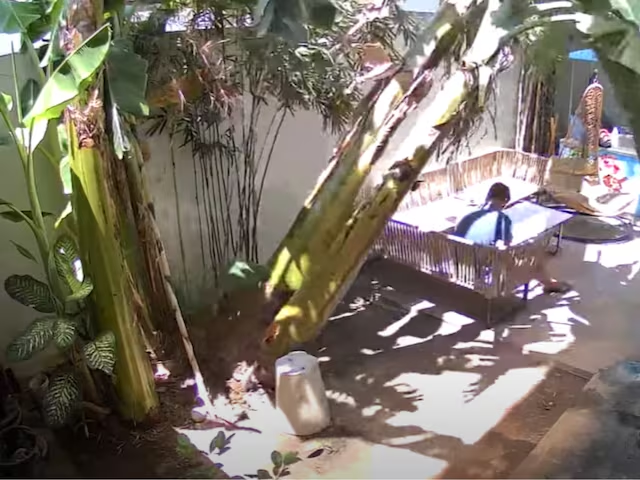Sanitation and Waste Management That Is Sustainable
Envision a society in which disposing of waste doesn’t endanger public health, contaminate waterways, or clog landfills. It sounds wonderful, doesn’t it?

That is the fundamental idea of sustainable waste management, which is to minimize waste production and maximize its appropriate disposal in a manner that safeguards human health and the environment. In addition to improving public health, job opportunities, and community involvement are often generated by sustainable garbage management. Furthermore, efficient sanitation is essential for sustainable waste management, particularly in a nation like India where universal solutions are impractical.
WHY IS IT SO IMPORTANT TO MANAGE SUSTAINABLE WASTE FOR SANITATION?
The World Health Organization (WHO) estimates that 1.5 billion people worldwide still do not have access to basic sanitary facilities. Inadequate waste management is one of the main obstacles to better sanitation.
Ineffective waste management may result in:
Disease spread: Uncollected or improperly disposed of waste may contaminate food crops, soil, and water supplies. It may also develop into a haven for infections, insects, rodents, and other disease-transmitting vectors including dengue, cholera, typhoid, diarrhea, and malaria. Millions of individuals are susceptible to these illnesses, particularly youngsters who are more susceptible to malnourishment and infections. Inadequate sanitation is a key contributing factor to various neglected tropical illnesses and is estimated by the WHO to cause 829,000 deaths from diarrheal disease per year. Furthermore, the open burning or dumping of garbage may generate harmful fumes and particles that trigger allergies, asthma attacks, and other respiratory ailments.
Pollution of the environment: The World Bank estimates that each year, 2.01 billion tons of municipal solid garbage are produced worldwide. Waste that is not properly disposed of contaminates surface and groundwater, ruins soil, and lowers air quality. This may have an impact on the quantity and quality of water available for irrigation, drinking, and other uses. Additionally, it may harm biodiversity and natural ecosystems that rely on these resources. Moreover, garbage that contains plastics or organic materials has the potential to release greenhouse gases like carbon dioxide and methane that worsen climate change and contribute to global warming.
The nation generates 160038.9 TPD of solid waste annually, of which 79956.3 TPD (or 50%) is processed and 29427.2 (18.4%) is landfilled, according to the Central Pollution Control Board’s Annual Report 2020–2021. It is obvious that more sustainable solutions are required for large-scale implementation. Thankfully, we can expand on a number of our successful initiatives and ideas.
The Garbage Disposal Complex in Pune is a cutting-edge establishment that integrates resource recovery, biogas production, and composting waste management techniques. It is already producing recyclable resources, avoiding environmental contamination, and diverting tons of garbage from landfills. Another project, Decentralised Composting by Bhumiproject, enables Bangalore, India communities to use basic, on-site composting devices to convert organic waste into compost. This promotes a sustainable cycle of waste treatment and resource use while also reducing trash and giving communities access to rich compost for gardening and agricultural purposes.
A TRANSFORMATION TOOLSET: TECHNOLOGIES AND PRACTICES
Waste not, want not is, for the most part, a sensible approach to how we live and what we eat. Anybody who lives in a tiny apartment usually finds that getting rid of stuff on a regular basis is normal. Although this is beneficial for each person individually, it puts more strain on our waste management systems. Here’s where a little planning—both for the acquisition and disposal—pays big dividends.
Here, there are choices to think about. Materials may be given a second life via recycling and upcycling, which lessens the need for virgin resources and cuts down on trash production. In India, effective programs such as the trash picker cooperatives in Chintan have enabled informal garbage collectors to effectively sort and recycle rubbish. Giving back to the earth is a terrific method to compost our culinary leftovers. When implemented widely in communities, it may result in significant cost savings. Community composting is actively encouraged by programs like Bangalore’s Saahas Zero Waste, which lessen the load on landfills and improve soil health.
Municipalities may lessen their reliance on landfills and create a valuable resource by using technologies like pyrolysis and incineration to turn non-recyclable garbage into electricity. Investments in these technologies, which provide a sustainable way to handle non-recyclable trash, are growing in India.
Building a Sustainable Waste Management Ecosystem
Although doing solo action is admirable, taking joint action is superior. especially if policies or government activities support it. This is the reason the Swachh Bharat Mission was such a huge success: the government, the people, and the many businesses and non-governmental organizations that supported the initiative all supported it. It started a momentum that continues to provide amazing outcomes for us.
A leading brand in India’s toilet care market, Harpic, has little problem generating momentum for sanitation programs. Harpic has been actively promoting the cause of good toilet hygiene for many years via creative and thought-provoking outreach initiatives and campaigns. Three years ago, it co-founded the Mission Swachhta aur Paani program with News18. This movement supports universal access to clean toilets as part of inclusive sanitation. Mission Swachhta aur Paani is a strong proponent of equality for people of all genders, abilities, castes, and social classes and believes that maintaining clean restrooms is a shared obligation.
Together with the audience reach that News18 provides, Mission Swachhta aur Paani also integrates thoughtful discourse amongst the appropriate stakeholders, including activists, government officials, non-governmental organizations, sanitation workers, educators, and members of the public. It has exposed a number of issues with our sanitation system and the challenges faced by sanitation personnel.
Naturally, momentum needs readers like you. A wealth of knowledge on all facets of India’s sanitation issues may be found in the articles, roundtable talks, and videos produced by Mission Swachhta aur Paani. The Swachh Bharat Mission is off to a great start thanks to the collective efforts of the country, but it will need our combined purpose and determined effort to see it through to the end.
Come learn how you can contribute to the creation of a Swasth and Swachh Bharat by joining us here.







